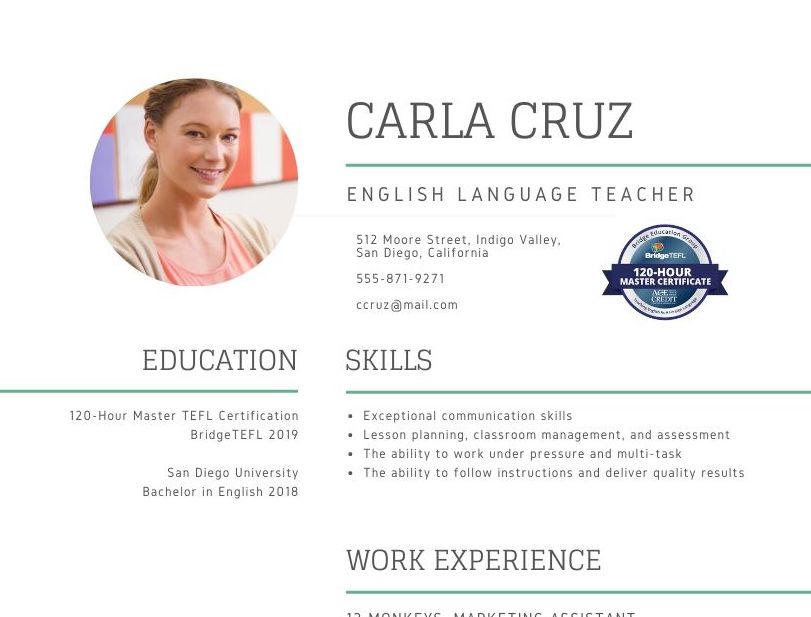For experienced teachers and newbies alike, the process of getting an online teaching job can be full of unknowns. Teachers may wonder where to find jobs with legitimate companies, what to expect during the application process, or how to prepare for a teaching demo during the interview. These job tips for teaching English online will help you start your new career off on the right foot.
1. Understand your job options for teaching English online.
Starting out, it’s helpful to know that there are many different ways to teach English online! You can work with a company, market yourself on an ESL teacher marketplace platform, or start your own freelance online tutoring business.
When you work with a company, you can expect more consistent working hours and plenty of classroom support, whereas if you choose to start your own business, you can set your own rates and cater to the type of students you want, but you’ll have to take care of marketing yourself. Using a marketplace platform falls somewhere in between the other two, as you will create a teacher profile to try and attract students already using the platform. While you can set your own schedule and pay rate, you’ll pay a portion of your earnings to the marketplace company.
Which option is right for you depends on where you are in your career, your qualifications, the level of autonomy you would like as a teacher, and your future goals.
If you’re interested in learning how to start your own freelance tutoring business, check out Bridge’s Specialized Certification Course: Teaching English Online as a Freelancer.

2. Do your research – compare online teaching jobs.
Should you decide to work with a company, or even a teacher marketplace, TEFL/TESOL job boards, such as the Bridge Job Board, are the perfect place to start your research into where to teach. Job boards are the ideal place to compare the requirements, pay range, minimum hours per week (if any), location of the students (as their time zone will affect your work schedule), and other details for a variety of companies.
Here are some companies currently seeking online English teachers.
3. Claim and showcase your Bridge digital badges before applying for jobs.
Hiring managers see a lot of resumes! Make yours stand out with the addition of a 21st-century credential: digital badges. If you’re a graduate of one of our Bridge online TEFL courses, you’ll get a free digital badge (in addition to your certificate) to showcase every achievement you earn. Share your badges on your resume, as well as other places employers will see them, such as your LinkedIn profile or email signature. You can also add your digital badges to your teacher marketplace profile or freelance website to attract more students.
Read more about how to use your digital badges to get TEFL jobs.

4. Highlight any ESL professional development you’ve done.
Beyond your TEFL certification, English language teaching companies love to see that you’re someone who prioritizes learning throughout your career. Whether you’re new to teaching or have many years of experience, make sure your resume includes any recent professional development training – like Specialized courses or Micro-credential courses – you’ve done, TEFL/TESOL conferences you’ve attended, webinars you’ve taken part in, or teaching memberships you have.
Learn about professional development for ESL teachers.
5. Showcase your language skills, especially if English isn’t your first language.
If you’ve learned (or are learning) a language, you’ll likely be better at teaching one, so make sure and highlight your experience as a student of any second language. And, if you’re a non-native English speaker, your first language can be an advantage as an online English teacher since you can market yourself to beginner students in your home country or anywhere your first language is spoken.

6. Specialize your TEFL/TESOL training to increase job prospects and earning potential.
Most online teaching jobs offer a range of hourly pay. How can you fall on the high end of that range? Earning a specialized certificate (such as Specialized Certification in Teaching English Online or a Bridge Micro-credential course certificate) in your teaching area of interest, whether it’s teaching kids, adults, or professionals, is a great way to maximize your earning potential.
What are teaching online salaries like? How much can you make?
7. If you’ve never taught English before, or never taught English online, get experience before you apply.
If you don’t have previous teaching experience, you can still get a job teaching English online, but experience is an advantage and may lead to higher pay. Some ways to add teaching experience to your resume are:
- Widen your definition of experience. Include past jobs or volunteer positions in which you’ve worked with kids, such as coaching or babysitting, as well as any experience training coworkers or employees on the job. Here are 5 organizations where you can volunteer to teach English online.
- Add a 60-hour virtual Practicum in Teaching English Online to your TEFL/TESOL certification.
- First, get online tutoring experience with a company that doesn’t require teaching experience, and later you can apply to higher-paid jobs.
8. Create a resume specifically for teaching online.
Don’t worry, your teaching English online resume won’t be drastically different from your standard resume; however, there are some small changes you can make to fit this type of job.
- Be sure to highlight any Specialized Certification in Teaching English Online.
- List technical skills to show your comfort level in a virtual setting.
- If you have an intro video or recorded teaching session, include a link to it.
Get more tips on how to make a stand-out online teacher resume.
9. Ask the right questions during the job interview.
When interviewing for an online English teaching job, just like any job, it’s important to ask well-thought-out questions to show you’ve done your research on the company and the job. For example, ask a specific question about the online teaching platform or about opportunities for professional development offered by the company. Avoid asking questions that could be easily answered via the information on the company’s website.
Launch your TEFL journey and score your dream job with our free eBook:
Teaching English as a Foreign Language
Download10. Focus on students when answering questions during your interview.
Unlike other job interviews, which focus a lot on you, ESL teaching interviews should focus on how you interact with students. When the interviewer asks you a question, see if you can put your answer in the context of working with a student in the virtual classroom. Highlight how your teaching methods lead to the best possible outcome for your online English students and their learning goals.
Here are popular TEFL interview questions and how to answer them!
11. Be prepared for the demo teaching lesson during your interview.
During your interview, you may be required to provide a short demo ESL teaching lesson so that the employer can see your teaching skills in action. This is your chance to show the different methods you’ve learned in your Teaching English Online TEFL/TESOL course, such as communicative language teaching (CLT), minimizing teacher talking time (TTT), applying teaching methods like Total Physical Response (TPR), and demonstrating effective error correction.












